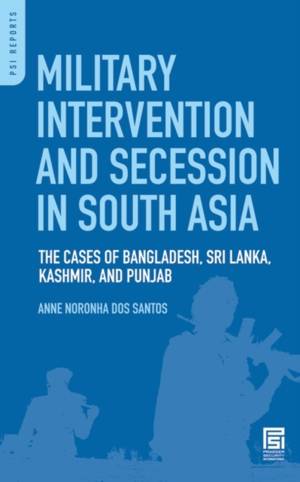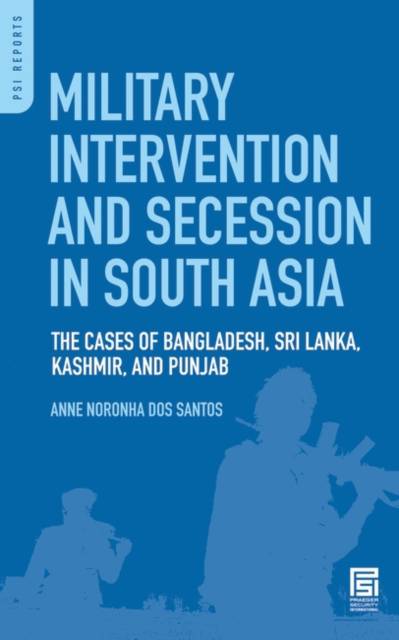
- Afhalen na 1 uur in een winkel met voorraad
- Gratis thuislevering in België vanaf € 30
- Ruim aanbod met 7 miljoen producten
- Afhalen na 1 uur in een winkel met voorraad
- Gratis thuislevering in België vanaf € 30
- Ruim aanbod met 7 miljoen producten
Military Intervention and Secession in South Asia
The Cases of Bangladesh, Sri Lanka, Kashmir, and Punjab
Anne Dos SantosOmschrijving
From Chechnya in Russia to Kashmir in India to the Basque region in Spain, secessionist movements remain a serious threat to international security. Despite the importance of this issue, the causes that bring about external military intervention in a secessionist war have not, until now, been adequately addressed. In this book, Dos Santos identifies the conditions that make international military intervention in a secessionist war more or less likely. South Asia, being fraught with secessionist movements--Bangladesh, Sri Lanka, Kashmir, and Punjab--provides an ideal laboratory for the examination of this compelling issue. Dos Santos argues that a shift in the balance of power between a secessionist group and its central government will lead to a preventive war on the secessionists by the central government. In turn, a preventive war of this nature may lead to an alliance between the secessionist group and an external power. The stronger the alliance, the greater the chances of an international military intervention.
Understanding the conditions under which secessionist movements expand, become secessionist wars, and invite international military intervention on behalf of the secessionists has strong policy implications. It can go a long way toward guiding policymakers who may want to mitigate or avoid these conditions in their states. Dos Santos views both states and secessionist groups as primary actors, and she examines both the distribution of power among states and the balance of power between central government and groups within states.Specificaties
Betrokkenen
- Auteur(s):
- Uitgeverij:
Inhoud
- Aantal bladzijden:
- 216
- Taal:
- Engels
- Reeks:
Eigenschappen
- Productcode (EAN):
- 9780275999490
- Verschijningsdatum:
- 1/10/2007
- Uitvoering:
- Hardcover
- Formaat:
- Genaaid
- Afmetingen:
- 164 mm x 236 mm
- Gewicht:
- 467 g

Alleen bij Standaard Boekhandel
Beoordelingen
We publiceren alleen reviews die voldoen aan de voorwaarden voor reviews. Bekijk onze voorwaarden voor reviews.











